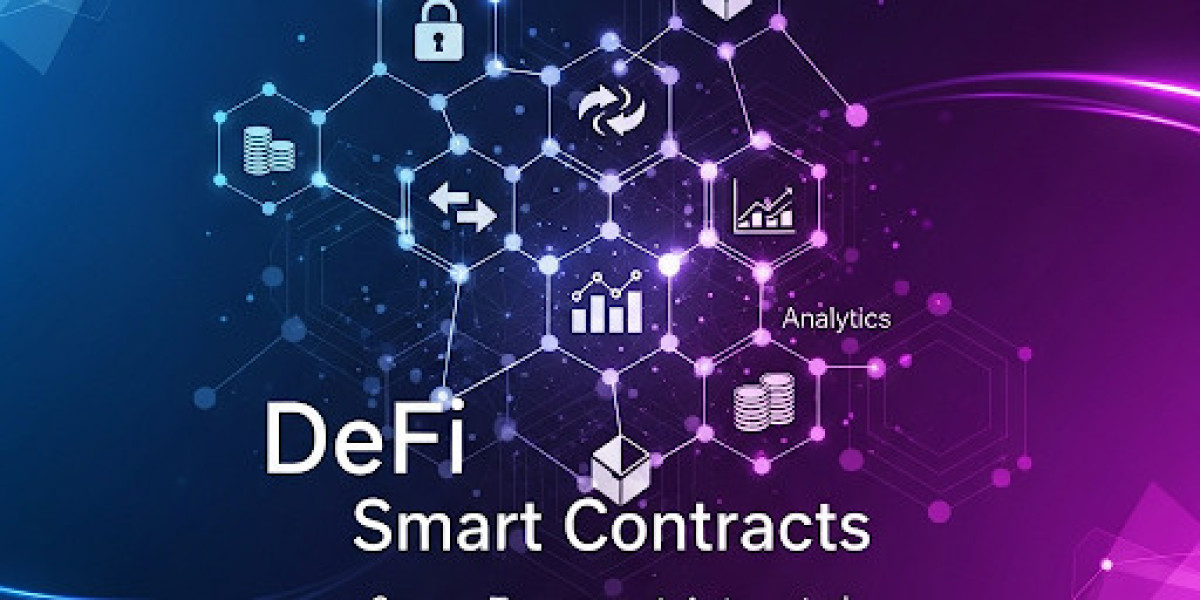The Benefits of DeFi Smart Contracts: Redefining Financial Systems
Decentralized Finance, or DeFi, is changing the landscape of finance. By using blockchain technology, DeFi seeks to eliminate traditional middlemen, like banks, brokers, and payment processors, from financial transactions. At the center of this change are smart contracts, which are self-executing pieces of code running on decentralized networks such as Ethereum. These contracts power DeFi applications, enabling secure, transparent, and automated transactions.
In this blog, we will explore the key benefits of DeFi smart contracts and how they are changing our approach to finance. We are blockchain and DeFi smart contract development company focused on building secure, scalable, and innovative DeFi solutions. We specialize in smart contract architecture, protocol design, and full-stack dApp development across Ethereum, Layer 2s, and EVM-compatible chains.
1. Trustless Transactions
Traditional financial systems rely on trust in central authorities, like banks or escrow services, to carry out transactions. In contrast, DeFi smart contracts do away with intermediaries by executing transactions based on pre-defined rules coded into the blockchain.
Once deployed, a smart contract works on its own, ensuring that all parties involved follow the rules. This trustless model is especially valuable in lending, borrowing, or decentralized exchanges, where users can transact with strangers without worrying about fraud or manipulation.
2. Transparency and Immutability
One major advantage of smart contracts is their transparency. Every smart contract and its transaction history are visible on the blockchain. Anyone can check the code to see how it operates, ensuring clarity and eliminating hidden terms or fees.
Moreover, once a smart contract is deployed, it cannot be changed unless specifically designed to allow upgrades. This immutability offers a high level of security and predictability, reducing the risk of tampering or unauthorized changes.
3. Efficiency and Automation
Smart contracts simplify financial processes by automating steps that would otherwise need manual work. For instance, in a DeFi lending protocol, when a borrower puts down collateral, a smart contract can instantly issue the loan. When it's time for repayment, the contract can automatically take funds or liquidate collateral if the conditions are not met.
This automation leads to quicker transactions, lower operational costs, and greater scalability. Unlike traditional banks, where processes can take days and involve several departments, DeFi contracts execute within seconds or minutes.
4. Cost Reduction
By removing middlemen and cutting administrative costs, DeFi smart contracts significantly lower the costs of financial services. There are no bank fees, brokerage commissions, or clearance charges. Instead, users only pay minimal network fees, known as gas fees, to interact with the blockchain.
This makes financial services more accessible, especially in areas where banking options are limited or costly. With just a smartphone and internet access, anyone can engage with the DeFi ecosystem—saving, investing, borrowing, or trading on their own terms.
5. Global Accessibility
DeFi smart contracts are borderless by design. They are available around the clock from anywhere in the world, needing only an internet connection and a crypto wallet. This offers a significant advantage over traditional financial systems that often leave the unbanked or underbanked behind due to rules, geography, or lack of infrastructure.
Whether it’s a farmer in rural Africa seeking micro-loans or a developer in Southeast Asia trading synthetic assets, DeFi opens the door to new opportunities for global financial inclusion.
6. Composability
One unique and often overlooked benefit of DeFi smart contracts is composability—the ability to stack and integrate different DeFi applications like building blocks. For example, a user can provide funds to a lending protocol, use the interest-earning tokens as collateral on another platform, and participate in yield farming on yet another—all coordinated through interconnected smart contracts.
This flexible structure speeds up innovation, allowing developers to create complex financial tools and services with relative ease. It also leads to a more dynamic and interconnected ecosystem.
7. Security (When Properly Audited)
Although DeFi platforms have experienced security issues, smart contracts can deliver a high level of security when they are thoroughly audited and well-coded. Unlike traditional systems that rely on trust in centralized IT departments or institutions, smart contracts execute based strictly on code. This reduces human error and malicious actions.
Of course, security relies heavily on rigorous code audits, open-source reviews, and responsible deployment. When these standards are met, DeFi platforms can be more reliable than many traditional financial institutions.
Final Thoughts
DeFi smart contracts are not just a technological advancement; they form the foundation of a new financial system. By offering trustless, transparent, and accessible financial services, they could empower billions of people worldwide. Although the ecosystem is still developing, the advantages are evident: faster, cheaper, and fairer finance for everyone.
As more people adopt this technology, and it becomes more secure and user-friendly, smart contracts will likely become a key part of how we manage, move, and grow our money in the digital age.







